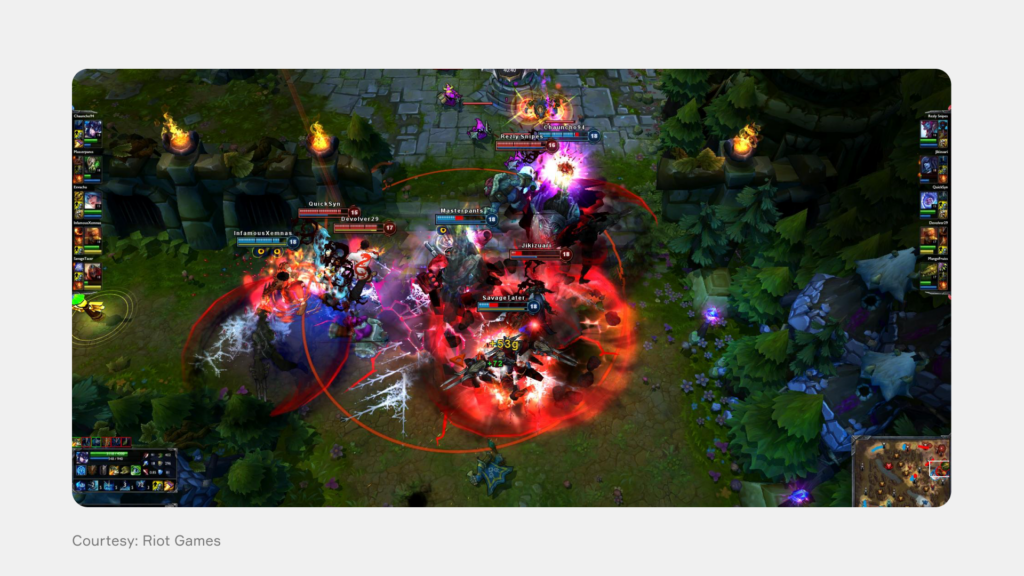
Online gaming just keeps on getting bigger.
High-flying titles are now topping big blockbusters, fueling another rising subset of this growing industry- esports.
What Is Esports?
Esports, also known as electronic sports, refer to professional competitive gaming based on video games.
In 2021, nearly 74 million people watched Riot Games’ League of Legends world championships, breaking all kinds of viewership records.
And in 1990, the Nintendo World Championships kicked off, touring dozens of U.S. cities. The most recent edition of the series took place in 2017.
It gathers teams from the United Kingdom, United States, Germany and Brazil.
Nowadays, playing and watching esports streams is widely accessible.
Currently, Asia and North American remain the largest markets, with China leading the pack.

Esports and the metaverse
In other words, the metaverse can be much more fun than it is today.
Simply put, P2P allows gamers to fully own in-platform assets and to monetize them in whatever manner they wish.
The integration of blockchain into the world of esports centers specifically on the use of non-fungible tokens (NFTs).
Let’s take a closer look at how this works.
Within a virtual marketplace, players can trade their gaming assets and hopefully reach a reasonably profitable outcome.

Benefits for esports in the metaverse
There are several upsides to shifting physical esports events to virtual ones in the metaverse:
Economic Incentives
By adding non-fungible tokens to metaverse esports gaming, developers can roll out titles with better economic incentives to players.
Accessibility
Thanks to crypto and NFTs, they can easily purchase gaming add-ons and enter esports matches. The same goes to esports betting, as bettors can easily place their wagers without paying high fees.
Improved transparency
Thanks to blockchain technology, it’s virtually impossible that players or esports teams could cheat in a metaverse tournament, including match-fixing. All steps taken and transactions made are transparent as they’re available for everyone on a network to track.
Other Article:
